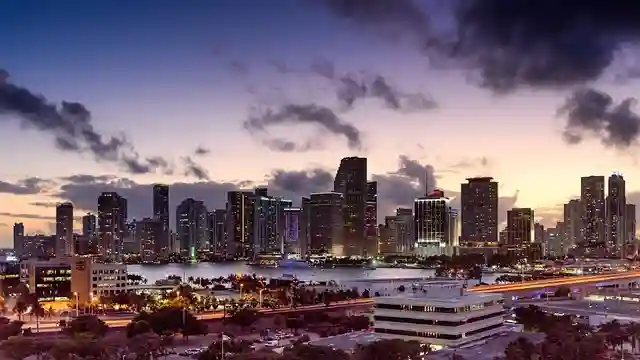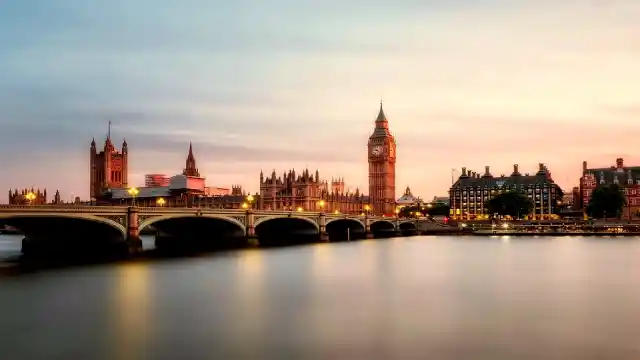If you are journeying to a new place, packing for a vacation can be a hideous task. It can be challenging to strike a balance between bringing everything you need and not overpacking. However, with some helpful tips and tricks, packing for a vacation can become a breeze.
Explore this ultimate guide to packing for a vacation. I am going to provide you with the information on the list for packing. You can make the most of your trip without any unnecessary stress.
From choosing the right luggage to packing the essentials. We'll cover everything you need to know to ensure a hassle-free and enjoyable vacation.
Research and Planning
Going to explore a new town, city, or country? Then, planning your trip thoroughly is quite important.
Choosing the Right Destination
With so many options available, it can be overwhelming to decide where to go. You can narrow down your options and find the perfect destination for your trip. Consider some key factors for it.
First and foremost, acknowledge your interests. Are you looking for a beach vacation, a cultural experience, or an adventure in the great outdoors? Do you want to immerse yourself in history or indulge in luxury? Think about what you want to do and see on your trip. And choose a destination that aligns with your interests.
Next, consider your budget. Different destinations have different costs associated with them. It's crucial to choose a destination that fits within your budget. Consider the cost of flights, accommodations, food, and activities when making your decision.
Another key factor to consider is the time of year you plan to travel. Some destinations are more enjoyable during certain seasons. Others may be overcrowded or closed during certain months.
Understanding the Climate and Local Customs
For a successful and enjoyable trip, you should know the climate of the place and learn a bit about the local customs. Here are some tips:
Climate
Research the climate of your destination and pack accordingly. Consider factors like temperature, humidity, and precipitation. If you're traveling to a tropical destination. Then pack light, breathable clothing and plenty of sunscreens. Traveling in a colder climate? Be sure to bring warm clothing and proper footwear.
Local customs
It's important to be respectful of the local customs and culture of your destination. Analyze the local customs and etiquette. And try to follow them as much as possible. This includes dress codes, greetings, and other social norms. For instance, some cultures consider it rude to show your feet' soles. And in some, it's a must to remove your shoes before entering someone's house.
Language
Learn a few key phrases in the local language to help you communicate with locals. Read about basic greetings, asking for directions, and ordering food. Your efforts to speak the local language will be appreciated. You can also connect with locals on a deeper level.
Food
Explore the local cuisine and be open to trying new dishes. But, be mindful of any dietary restrictions or allergies you may have. If you have concerns about the safety or cleanliness of the food. Then stick to the famous local restaurants.
Religion
Traveling to a destination with a different religion than your own? Then be respectful of their beliefs and customs. Your dress codes and behavior should be appropriate in places of worship.
The Importance of a Packing Checklist
Create packing lists for your trip. It is a vital part of the planning process. Here are some reasons why having a packing checklist is important:
- Helps you pack efficiently: You can plan out exactly what you need to bring. It also ensures that you don't let slip anything. This can help you pack efficiently and avoid overpacking.
- Reduces stress: Knowing that you have everything you need for your trip can reduce stress and anxiety. Minimal worries about forgetting something important. Or not having the right clothing or gear for your activities.
- Saves time and money: Your money and time will definitely be saved when you pack only what you need. No demand to spend time shopping for items you forgot to pack. Or pay extra baggage fees for overpacking.
- Helps with organization: A packing checklist can help you stay organized and keep track of everything you need to bring. You can categorize items by type like clothing, toiletries, or electronics. It makes packing and unpacking easier.
- Ensures you have everything you need: It surely ensures that you have everything you need for your trip. Travel documents, medication, sunscreen, insect repellent, etc.
Organizing your Checklist by Categories
The best way to make sure everything is there. You will stay organized too while packing. Here are some categories of the ultimate guide to packing for a vacation, you can use to organize your packing checklist:Clothing: All the clothing items you need for your trip. Consider the climate and activities when choosing your clothes.
- Clothing: All the clothing items you need for your trip. Consider the climate and activities when choosing your clothes.
- Toiletries: All the toiletries you'll need. For instance shampoo, soap, toothbrushes, personal hygiene items, etc.
- Medications: Any prescribed medicines, over-the-counter medications, vitamins, supplements, etc. you need to bring.
- Electronics: All the electronic items you need for your trip. Phone, camera, laptop, charger, adapter, etc.
- Travel documents: All the travel documents you need. Passport, visa, boarding pass, and travel insurance.
- Accessories: Any accessories you need for your trip. Hats, sunglasses, jewelry, or scarves.
- Outdoor gear: Any outdoor gear you need like hiking boots, a rain jacket, a backpack, etc.
- Miscellaneous items: Other items you need for your trip. Books, a travel pillow, or a reusable water bottle.
Considering Travel Restrictions and Baggage Policies
Here are some tips to help you navigate the considerations while traveling and help in your list for packing.
- Research travel restrictions: Before booking your trip, research any travel restrictions that may be in place for your destination. Visa requirements, quarantine regulations, or COVID-19 testing requirements. Comply with all the demands to avoid any issues during your trip.
- Check baggage policies: Each airline has its own baggage policies. So, it's important to check them before you fly. Make sure you know the weight and size limits for checked and carry-on luggage. And any fees that may apply.
- Pack strategically: Want to avoid excess baggage fees or having to check additional bags? Then pack strategically and try to fit everything into your carry-on luggage. Roll your clothes instead of folding them to save space. And pack items that can be worn multiple times.
- Consider purchasing travel insurance: It gives valuable coverage for trip cancellations, medical emergencies, and lost or stolen baggage. Read the policy carefully to understand what is and isn't covered.
- Be prepared for security screenings: When packing, make sure to follow all TSA guidelines to avoid any issues during security screenings. Pack liquids in a clear plastic bag, remove electronics from your carry-on luggage, and wear shoes that are easy to take off and put on.
Packing Essential Items
Include certain essentials to have a smooth and stress-free travel experience.
- Passport: Your passport is your most important travel document. So, pack it in a safe and easily accessible place. Secure that your passport is valid for a minimum of six months if traveling out of the country.
- Travel documents: In addition to your passport, bring all other travel documents. Visa, boarding pass, and travel insurance documents. Keep these documents in a separate and secure place.
- Money and credit cards: Carry ample cash and credit cards to cover your expenses during the trip. It's a great strategy to bring a mix of cash and cards in case one is lost or stolen.
Determining Clothing Needs
- Length of trip: It determines how much clothing you need to pack. For a shorter trip, you may be able to pack fewer items and re-wear certain pieces. And for a long trip, you may pack more clothes or plan to do laundry.
- Nature of trip: Consider the nature of your trip when packing clothing items. A business trip requires professional attire. For a backpacking trip, you’ll need comfortable and durable clothing. Swimwear and light clothes are needed for a beach vacation.
- Weather: The climate of your destination will also regulate what clothing items to pack. Cool-weather requires warm clothing like a coat, hat, gloves, etc. Traveling to a warmer climate? Then, you’ll need lightweight clothing.
- Dress Codes: Be aware of any dress codes or cultural norms when packing clothes. For a destination with a different culture or religion, you may need to pack more conservative clothing items.
- Versatility: Pack clothes that can be worn in multiple ways or for different occasions. For example, a dress that can be worn up or down. Or a pair of pants that you can wear for hiking or a night out.
Packing Clothes for Different Activities and Environments
Examine the needs of each activity and location in your vacation list for packing your clothes for different activities and environments.
Hiking
A hiking trip requires durable, comfortable, and breathable clothes. Choose moisture-wicking fabrics that will keep you cool and dry. You can also pack a waterproof jacket or rain poncho in case of rain. And don't forget sturdy hiking shoes and socks.
Beach
For a beach cation, pack clothing that is lightweight and easy to wear over your swimwear. Carry a variety of swimsuits, cover-ups, and board shorts. And must pack a sun hat, sunglasses, and a beach bag to carry your essentials.
City Sightseeing
Pack comfortable and stylish clothing that you can wear all day if you are sightseeing at your destination. Choose fabrics that won't wrinkle easily like cotton or linen. And pack a cozy pair of shoes, a small backpack, or a crossbody bag.
Business Trip
Traveling for business? Then, pack clothes that are professional and appropriate for your meetings or conferences. Bring items like a suit or blazer, dress shirts, pants, dress shoes, etc. Add some personality to your outfits by packing a tier or scarf.
Winter Sports
Pack clothes that are warm and waterproof for winter sports. You should carry thermal leggings and a long-sleeved shirt for this trip. And some more items like a warm jacket, waterproof pants, gloves, neck warmer, etc,
Don't forget warm boots or shoes.
Cultural destinations
If you'll be visiting these places, be aware of any dress codes or norms. And pack clothing that is respectful and appropriate. Bring items that will cover your shoulders and knees like pants or long skirts. You can also pack a scarf to cover your head if needed.
Dressing Properly for Places of Culture
To avoid any unintentional offense and travel respectfully, this is an important part. Here are some tips:
Research cultural norms
Before you travel, research these norms of your destination to get an idea of what is considered appropriate dress. It can include information about local customs, dress codes for religious sites, and attire for public spaces.
Cover up
If you're traveling to a place with a more conservative dress code. Then, cover up your shoulders, chest, and legs. This might mean wearing long sleeves and pants. In some cultures, it's also respectful to cover your head.
Avoid revealing clothes
In many cultures, it's considered inappropriate and disrespectful to wear revealing clothes. Avoid wearing too tight, too short, or very low-cut clothes.
Dress modestly
The dress code is not strictly enforced in many places. But it's still appreciated to dress modestly. This means avoiding clothing that is too flashy or attention-grabbing.
Be humble of religious sites
When visiting places of religion, it's important to dress appropriately out of respect for the culture and religion. It might include covering your head, wearing full clothes, or removing your shoes.















